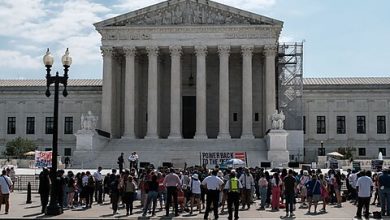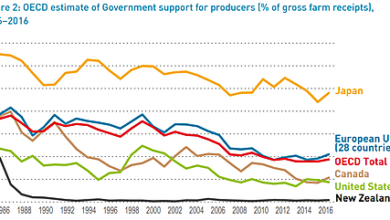Trump Indicted Over Attempt To Remain In Power

A federal grand jury yesterday charged former president Donald Trump with four criminal counts in connection with his attempt to overturn the results of the 2020 election and remain in power. The four counts are: conspiracy to defraud the United States, conspiracy to obstruct an official proceeding, obstruction of and attempt to obstruct an official proceeding, and conspiracy to deprive persons of protected rights. The indictment cites six unnamed co‐conspirators. Five can be identified from context as Trump advisers or administration officials, four of whom are lawyers. The sixth is a yet‐unidentified political consultant.
Each indictment of Trump — yesterday’s was the third, with a fourth expected soon from Georgia — is different in its own way. Let’s start by looking at a few of the ways in which this one differs from the two previous, and then go on to briefly preview how a few legal issues may unfold in the new prosecution.
The ultimate gravity of the conduct. Of the criminal proceedings under way against Trump, this is the one that squarely addresses the conduct that posed the gravest threat to republican liberty, his attempt to nullify the decision of American voters and steal a second term as president they had declined to give him. Serious as are the Florida federal prosecution’s charges of obstruction of justice and improper retention of national security documents, such conduct by an ex‐president is unlikely to result in a constitutional crisis or bloodshed in the halls of government or the streets. This one, not so much.
No mere regulatory infraction. The Manhattan charges against Trump for falsifying business records to conceal payoffs to a paramour appear to be based at least in part on unusually strict requirements specific to New York. That is one reason many commentators have been cool toward them. In 1905 one court drew a familiar distinction as follows: “An offense malum in se is properly defined as one which is naturally evil as adjudged by the sense of a civilized community, whereas an act malum prohibitum is wrong only because made so by statute.” It is hard to read the new indictment without concluding that if proved, many elements of the misconduct would be broadly condemned by civilized opinion as intrinsically wrong.
Novel legal and constitutional issues. Notwithstanding the odd frivolous theory in Trump’s defense about the Presidential Records Act, the classified‐documents indictment is likely to be cut and dried in many of the legal issues it raises. The courts each year process a substantial number of cases alleging improper document retention as well as obstruction of justice, and are unlikely to carve out a special exemption for ex‐presidents.
Yesterday’s indictment, in contrast, is likely to raise legal issues that are relatively unfamiliar, uncertain, or both. Few legal commentators are deeply familiar with all four of the statutory bases on which the grand jury filed charges, and intuitions can be deceptive: in applying the law against defrauding the United States, for example, courts have not always construed the elements of fraud in the same way they do in some other fraud areas, and the interpretations have also changed. It is not entirely settled how the elements of obstructing an official proceeding will ultimately shake out in January 6 cases, and so forth.
In other words, caution is called for at this stage in predicting the extent to which judges will trim back the scope of this prosecution, if they do. It is widely agreed that the First Amendment protects some telling of lies for political benefit, and also that it protects (as, in effect, lobbying) some efforts to persuade government officials to carry out acts that are wicked and unconstitutional. It is equally certain that the First Amendment does not protect every act of speech or persuasion that someone might retroactively try to jam into these categories. If you shut down a pending courtroom trial by phoning in a false report of a dangerous gas leak, you cannot get off by arguing that you were just exercising your speech and lobbying rights, nor are you likely to get off by arguing that you knew there was a gas stove in the court cafeteria and were basing your 911 call on a sincere belief that there was an elevated risk of asthma from stray methane.
In short, it matters in law and under the First Amendment whether speech and lobbying intended to obstruct proceedings or nullify rights was taken in good faith or otherwise, and deceitfully or otherwise. That is probably one reason why the indictment cites extensive cause to believe that Trump knew his claims of election fraud to be false, rather than wandering around in some sort of fugue state in which he might reasonably believe them to be true.





